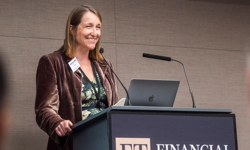
This week saw the announcement that Facebook is to give £4.5 million for local newspaper groups to hire 80 people to spend two years training to become community reporters. The scheme, administered by the NCTJ, is designed, says Facebook, "to encourage more reporting from towns which have lost their local newspaper and beat reporters".
This comes on top of the BBC-funded Local Democracy Partnership which supports 150 local journalists, an initiative aimed at making sure local government is being properly reported.
What’s not to like? More well-trained local reporters is unquestionably a good thing. It’s also a good thing that Facebook is putting something into journalism, a profession that its huge success has threatened the very existence of.
So, why does something seem not quite right?
As Rory Cellan-Jones, the BBC’s technology correspondent, said, “what happens to these community reporters at the end of the two-year training period when Facebook stops paying for them? If this kind of ultra-local reporting isn't commercially viable now, why will things have changed?”
And what if the newspaper groups that are taking advantage of the scheme start cutting editorial staff? Then Facebook and the BBC would simply be propping up the bottom line of commercial organisations. I’m sure the NUJ will be keeping an eye open for that.
In these straitened times, if this extra cash means that things get reported that otherwise wouldn’t, then that’s got to be welcomed. But the challenge is to come up with a business model that makes such hand-outs unnecessary.
I hope local newspapers take this as affirmation that their work is important and redouble their efforts to find a profitable model.
Only when they are in a position to say, “thanks, but no thanks” to such offers, will we know that they’ve found one.










